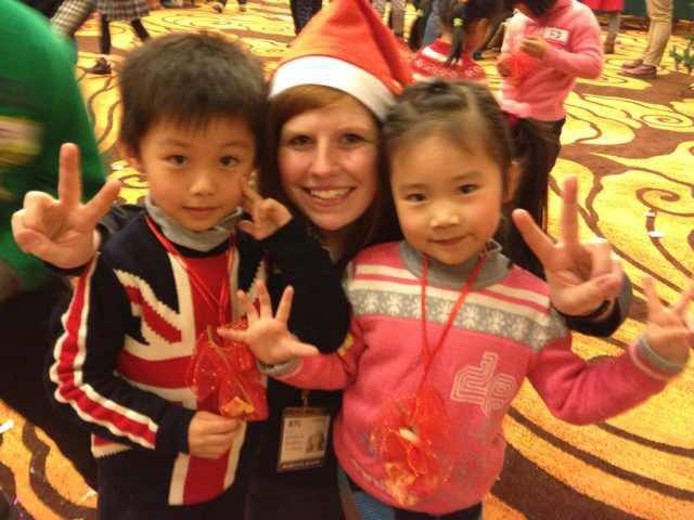The best thing about working in a private school is undoubtedly the chance to get to know your students really well. Class sizes at paid institutions tend to be much smaller than at state schools, with most classes usually having between eight and fifteen students. I had some classes with as little as four children in! In a standard lesson, I would always try to tailor different aspects of the class to complement a whole variety of learner types, including, visual, auditory and kinesthetic. Having a smaller group to focus on meant that I knew the students and their learning styles very well so I could alter parts of the lesson to maximise pupil’s learning potential.
One requirement of studying at an English school in China is that students give themselves an English name. There are a couple of reasons for this. Firstly, it is done to help the Foreign Teacher identify the children in a familiar manner. This saves a lot of confusion over the pronunciation of confusing Chinese characters! It also helps to immerse the child in the English language learning environment. In my experience, students love choosing an English name but don’t be surprised if they ask you for some help. I always thought that naming my students was an honour and felt that both the pupil and I had a stronger bond because of it. Be aware that children get bored quickly and they will often change their names to fit with what is cool at the time. I once had a student called Firetruck change his name to Lamborghini! (Both admirable choices I must say!) The small class sizes are definitely helpful when it comes to remembering pupil’s ever-evolving names!
At my school, we often put on additional events to celebrate cultural occasions such as Christmas or Halloween. During these events, we would dress up and run workshops around the theme. Generally, these activities would take place in the private school but there were occasions where we would do additional activities during our weekly state school visits. The activities were free for the children to attend and encouraged a more fun setting where the pupils were able to develop their English skills. Interacting with the students in this way meant that learning was delivered much more informally and also allowed you to bond with the students outside of the traditional lesson format.
One thing that I particularly liked about working in a private school was that I was able to keep my classes as their English improved and they progressed through the courses. From speaking to other expats who worked in state institutions, it seems that this isn’t possible in all schools though. There were teachers at my school who had been there for a few years and kept some of their very first classes throughout their time working there. This familiarity with groups helps you to establish a good relationship with the student’s and their parents.
Whilst you are primarily a teacher, it is important to recognise that half of your value is based solely on your cultural identity. Parents want native speakers teaching their children, not because they are better than local teachers but because they want a more authentic language learning experience. The thing that makes you exciting to students is your background, so, by all means, use it to generate interest. At the beginning of my first lesson with a new class, I would present a slideshow with a bit about myself, my family and my home to give the students a window into my life outside of teaching. After showing this presentation, I would go round and get students to tell me something about themselves. This was a good way to break the ice and make the class more personal.
Before I left my teaching job in China, I worked alongside the replacement teacher to ensure the smooth handover of my classes. When my final week came, I was touched to see that many of my students bought me parting gifts and cards. I received everything from ornate money boxes (lovely) to seaweed rolls (not so lovely).
There are numerous advantages to working in a private school but it was getting to know the students that I really loved. Been able to establish a rapport with them is hugely rewarding, not just for you as a teacher but also for the children that come to value you, both as an educator and as an individual.
Has this inspired you to begin your own teaching adventure in China? Explore our programs or head to our application page to get started today!


Leave A Comment
You must be logged in to post a comment.